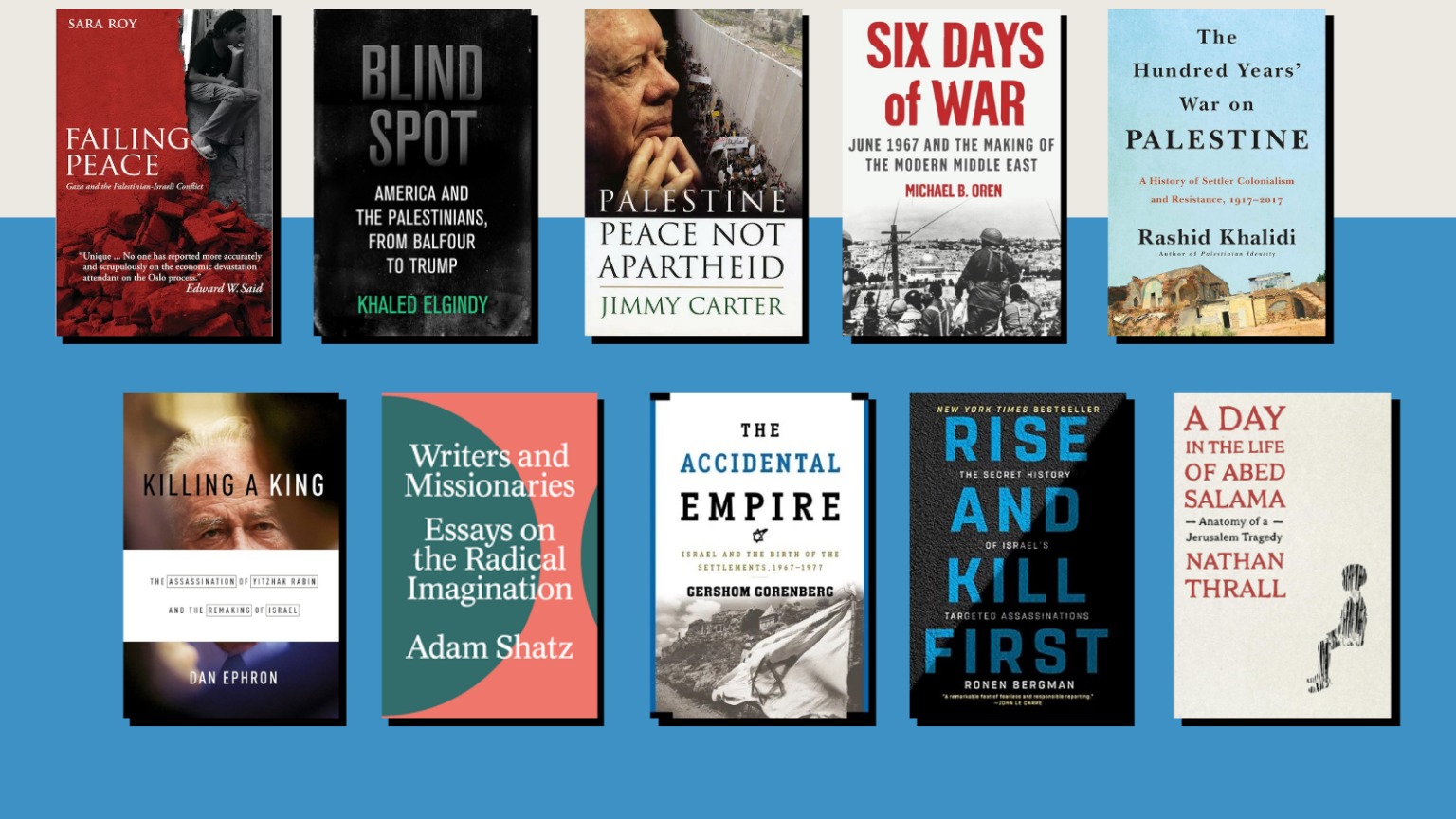In the midst of the Israel-Palestine conflict, a crisis marked by Hamas’s assault on Israel and Israel’s “complete siege” and bombardment of Gaza, there’s a growing interest in understanding the historical and political dynamics of this long-standing dispute. A collection of books offers unique perspectives, shedding light on subjects such as the rise of Hamas, Israeli intelligence, and the origins of the conflict. With a diverse array of authors, these books provide a multifaceted view of the complex issue.
The Accidental Empire: Israel and the Birth of the Settlements, 1967-1977
Gershom Gorenberg’s 2006 book, “The Accidental Empire,” provides a deep dive into the early settler movement. It takes readers back to the aftermath of the Six-Day War in 1967, exploring the period when Israel captured significant territory from Jordan, Egypt, and Syria. Gorenberg argues that it was the absence of a coherent policy that allowed religious settlers to build on occupied Palestinian land, leading to the massive expansion of settlements. The book lays a foundation for understanding the roots of the conflict, especially regarding the settlement enterprise.
A Day in the Life of Abed Salama: Anatomy of a Jerusalem Tragedy
Nathan Thrall’s “A Day in the Life of Abed Salama” paints a vivid picture of life under Israeli occupation through the lens of a tragic 2012 traffic accident in Jerusalem. The accident, which claimed the lives of six children and one teacher on a bus carrying Palestinian kindergarteners, reveals the harsh reality of Palestinians living under occupation. Thrall dissects the structural inequality and oppression that contributed to the severity of the tragedy. By combining personal narratives with historical analysis, the book offers a comprehensive view of the situation.
Failing Peace: Gaza and the Palestinian-Israeli Conflict
Sara Roy’s “Failing Peace” delves into the relentless suffering experienced in Gaza. The book chronicles the systematic immiseration of the region, its catastrophic impact on the population, and the failures of the peace process. Roy’s deeply compassionate perspective, influenced by her background as the daughter of Holocaust survivors, offers insights into how Gaza has deteriorated over the years. As a pivotal resource, the book helps make sense of the ongoing brutal violence in the area.
Palestine: Peace Not Apartheid
Former U.S. President Jimmy Carter’s 2006 book, “Palestine: Peace Not Apartheid,” predates the recent characterization of Israel’s treatment of Palestinians as apartheid by human rights organizations. Carter places much of the blame on Israel, highlighting its continued expansion of settlements over negotiating in good faith. The book serves as a historical reference for understanding the roots of the Israeli-Palestinian conflict.
Blind Spot: America and the Palestinians, From Balfour to Trump
Khaled Elgindy’s “Blind Spot” focuses on the United States’ relationship with Palestinians and how it influenced the peace process. As a former advisor to the Palestinian leadership during permanent status negotiations, Elgindy provides a unique perspective. His book offers a historical analysis of U.S.-Palestinian relations, shedding light on how they have shaped the peace process over the decades.
Rise and Kill First: The Secret History of Israel’s Targeted Assassinations
Ronen Bergman’s “Rise and Kill First” explores the shadowy world of Israeli intelligence and its targeted assassination programs. It provides essential context for understanding the recent Hamas attacks on Israel, offering insights into the strategies and consequences of these operations.
Writers and Missionaries: Essays on the Radical Imagination
Adam Shatz’s collection of essays, “Writers and Missionaries,” while not centered solely on Israel and Palestine, contains insightful profiles related to the region. Shatz’s work includes an in-depth narrative about the life and death of Juliano Mer-Khamis, an actor who symbolized the conflict’s complexities due to his mixed heritage. The book provides unique stories that contribute to the broader understanding of the region.
Six Days of War: June 1967 and the Making of the Modern Middle East
Michael B. Oren’s comprehensive account of the Six-Day War in 1967 provides historical context to the contemporary conflict. Oren’s book examines how this short and localized war had far-reaching, global consequences and played a significant role in shaping modern Israel and the Middle East.
The Hundred Years’ War on Palestine: A History of Settler Colonialism and Resistance, 1917–2017
Rashid Khalidi’s “The Hundred Years’ War on Palestine” presents a deeply personal and sweeping account of the past century. As a historian and a descendant of a mayor of Ottoman-era Jerusalem, Khalidi offers a unique perspective on the Israeli-Palestinian conflict. His book reassesses the roots of the ongoing conflict and provides a broad narrative that combines scholarship with personal history.
Killing a King: The Assassination of Yitzhak Rabin and the Remaking of Israel
Dan Ephron’s “Killing a King” delves into the assassination of Israeli Prime Minister Yitzhak Rabin by a right-wing extremist. The book provides a chilling page-turner that covers critical shifts in Israel, Palestine, and the world post-Oslo Accords, shedding light on how the Israeli government transitioned towards an extremist, right-wing ideology.
These books offer a rich tapestry of perspectives, historical accounts, and deep analysis of the Israel-Palestine conflict. Whether exploring the origins of settlements, life under occupation, or the historical context of the conflict, these resources provide valuable insights into the ongoing crisis in the region. In a time marked by turmoil and violence, understanding the complexities of this long-standing conflict becomes more critical than ever.















